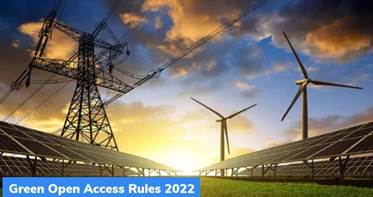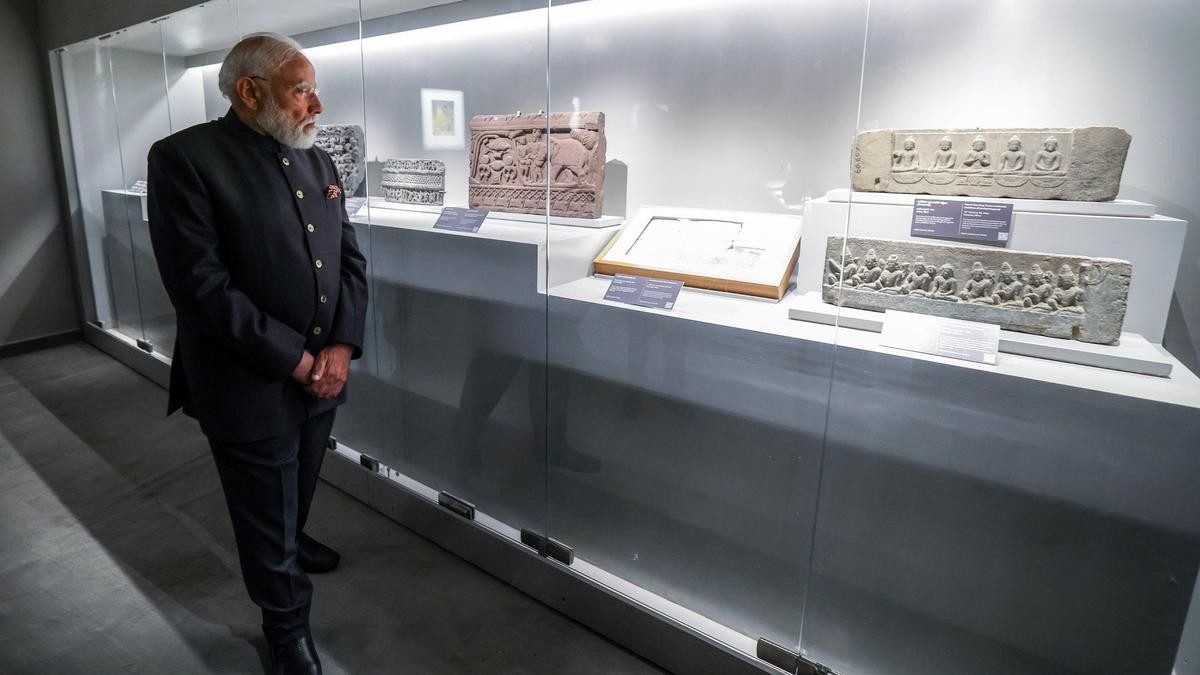Description

Disclaimer: Copyright infringement not intended.
Context
- The Ministry of Power recently notified the Green Open Access Rules, 2022 to further accelerate India's renewable energy programmes.
Details
- These rules are notified for promoting generation, purchase and consumption of green energy including through waste-to-energy plants. It enables a simplified procedure for the open access to green power.
- In 2016, India signed the Paris Agreement and we promised of having 50 per cent of its total electricity be generated from clean energy sources by 2030. The changes to green energy open access were made to ensure that we meet our deadline.
The New Rules
Green Power for Consumers from DISCOMS
- Consumers can now demand green power from DISCOMS (power distribution companies). Every consumer becomes stakeholder to contribute in achieving India's commitment of 500 GW of non-fossil fuel by 2030.
Green open access and its limits
- As per the rules, the green open access is allowed to any consumer and the limit of open access transaction has been reduced from 1 MW (megawatt) to 100 kW for green energy in order to enable small consumers also to purchase renewable power through open access.
Note: Open access refers to the non-discriminatory provision for the use of transmission lines for green-energy generation.
- This change is incredibly impactful for smaller industries that were not able to access electricity generated from green sources. This is because most of them consume significantly less than the 1 MW threshold, which was in place earlier.

Transparency in the approval process
- There will be transparency in the approval process of the open access applications. As per the rules, the approvals are to be granted in 15 days or else it will be deemed to have been approved subject to fulfillment of technical requirements. It will be through a national portal.
Tariff for the green energy
- The tariff for the green energy shall be determined separately by the appropriate commission. This Commission, which shall comprise of the average pooled power purchase cost of the renewable energy, cross-subsidy charges, if any, and service charges covering the prudent cost of the distribution licensee for providing the green energy to the consumers.
Certificates for consuming Green Energy
- Consumers will be given certificates if they consume green power.
Surcharge and additional surcharge
- Cross subsidy surcharge and additional surcharge shall not be applicable, if green energy is utilized for production of green hydrogen and green ammonia.
Uniform renewable purchase obligation
- There shall be a uniform renewable purchase obligation on all obligated entities in the area of a distribution licensees.
- Note: Renewable Purchase Obligation (RPO) mandates that all electricity distribution licensees should purchase or produce a minimum specified quantity of their requirements from Renewable Energy Sources. This is as per the Indian Electricity Act, 2003.
Significance
- The rules will help streamline the overall approval process for granting open access, including timely approval, to improve predictability of cash flows for renewable power producers. It will also bring uniformity in the application procedure.
- The rules provide certainty on open access charges to be levied on green energy open access consumers, which includes transmission charges, wheeling charges, cross-subsidy surcharge and standby charges.
- Cap on increasing the cross-subsidy surcharge as well as the removal of additional surcharge not only incentivizes the consumers to go green but also addresses the issues that have hindered the growth of open access in India.
https://www.downtoearth.org.in/news/energy/green-energy-govt-reduces-open-access-transaction-limit-to-100-kw-83878
1.png)











